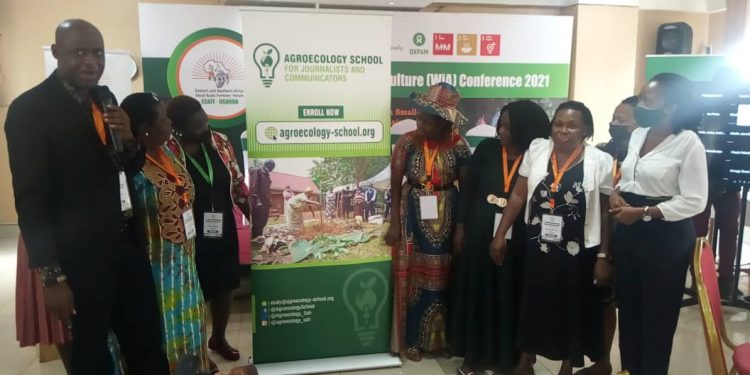The Eastern and Southern Africa Small Scale Farmers (ESAFF), has launched an online school intended to train journalists reporting on Agroecology.
The ESSAF Uganda, chairperson, Hakim Baliraine, while launching the Online school, noted that the media and other communicators have a big role they play in influencing what the public should consume, plant and sell.
He said that Many small-scale farmers are lured into conventional agriculture because of the increased popularisation from the media.
Baliraine said that the school has been started to improve on the messages given out by the media.
Baliraine added, “We believe that if the media took on the role of promoting agroecology in Uganda, the population will start consuming healthy food and expose the negative impact of industrial agriculture on the environment and health of citizens,”
Agroecology is a holistic sustainable approach to agriculture that combines indigenous knowledge with cutting-edge technology.
It respects nature, works with ecosystems and not against them. Through the system, farmers recycle water and vital nutrients.
Baliraine noted that the current methods of conventional large scale industrial agriculture are environmentally unsustainable as they lead to biodiversity loss, soil degradation, greenhouse emissions, water pollution and unsustainable use of natural resources.
He revealed that Industrial-scale agriculture contributes 23% of greenhouse gases released.
“Because power is concentrated in the hands of a few multinational food corporations, this type of agriculture leads to social inequality, poverty, disempowerment and inequitable land use,” he noted.
Baliraine explained that once the online school opens in March 2022, it will be free of charge for all journalists.
“We are making it free of charge so that the targeted beneficiaries do not get excuses of lack of finances,” he said.
Irene Nakijoba, a small scale farmer from Mukono district, noted that the online school has come at such a right time.
“We are trying to transition back to traditional farming methods which play a great role in protecting the environment yet the media was bent on promoting conventional agriculture,” she said.











